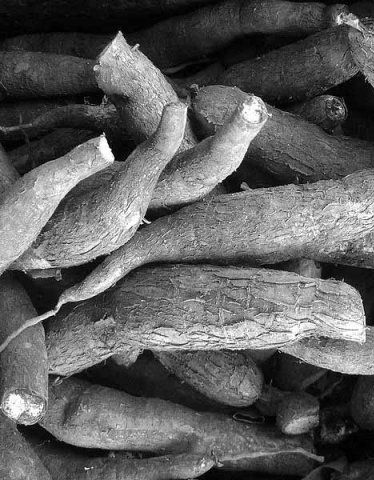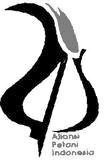The food crisis is not a lack of food in the market. Rather it has been a legacy of our subscription to skewed global trading systems at the expense of our communities and culture.
The currentrecession,been the result of an economic crisis has coupled with the increasing world oil prices and the politics of food distribution. Furthermore, the increase in the food prices has been exacerbated by the delay of food exports from China, Vietnam and India, the region’s biggest food producers. 
In Indonesia, the food crisis hits the most vulnerable people in the urban informal and agriculture sectors. To survive, the people sell or pawn their valuables such as jewelry, bicycles and furniture. Some are also obtaining loans.
People are reducing both their calorie and protein intakes. More and more are also switching to cheaper processed food that contain preser vatives and chemicals dangerous for human health. Not surprisingly, cases of marasmus and kwashiorkor are increasing. In urban areas, some mothers and children are attempting suicide in desperation.
Indonesia is a vast archipelago but 80 per cent of its land surface consists of dry uplands. Thus the existing plant vegetation allows the growth of diverse varieties of food crops, which are also beneficial to the body.
Tubers and fruits, for instance, are rich sources of good calories and vitamins. However, because of the politics behind rice production strategies, where rice has been promoted as the basic staple crop, the population has become quite heavily dependent on rice for their diet.
Aliansi Petani Indonesia  (API) is a national coalition of peasant organisations in Indonesia that aims to strengthen the country’s peasant movement and its advocacies, campaigns and initiatives towards ensurings people’s access to land. API is also facilitating linkages between local farmers and international groups, especially in the opposition to the World Trade Organisation’s Agreement in Agriculture. In organising and mobilising communities, API has helped in information-exchange and capacity-building programmes. It has also embarked on the documentation of agrarian cases in the country.
(API) is a national coalition of peasant organisations in Indonesia that aims to strengthen the country’s peasant movement and its advocacies, campaigns and initiatives towards ensurings people’s access to land. API is also facilitating linkages between local farmers and international groups, especially in the opposition to the World Trade Organisation’s Agreement in Agriculture. In organising and mobilising communities, API has helped in information-exchange and capacity-building programmes. It has also embarked on the documentation of agrarian cases in the country.
Source: http://www.api-about.blogspot.com/
Indeed, this has had an impact on culture. We say we have not yet eaten, if we have not yet eaten rice. Also, when the rural folks entertain their guests at home, they exchange their local rice varieties with the hybrid varieties of rice from the nearest store, thinking that the latter is better. This conquest of rice culture is breaking up the diversity of non-rice food crops in the country, which actually have been a part of our heritage.
Indonesia is facing food scarcity, which translates to a scarcity of rice. Aside from the increasing population, we have also seen the increasing conversion of rice lands.
The government’s policy to address this issue has been through a direct assistance programme called “Raskin,” meaning rice for poor people. Surprisingly though, the biggest beneficiaries of Raskin are peasants who are landless or agricultural labourers, who are supposed to produce their own food.
However, in the farmers’ organisation in East Nusa Tenggara, an area of high vulnerability to food insecurity and malnutrition, the peasant members of Aliansi Petani Indonesia are reducing their intake of rice. They eat rice for just one day each week. The peasants, especially the women farmers, promote local food such as corn, which is resistant to climate fluctuations and high in protein. They also consume yam.
The local peasant organisations are reaching out to social institutions that can help revive the traditions of the local food system, which can provide both calories and nutrition for the rest of the community.
In the plateau area, the peasants operationalise a family-based strategy by cultivating non-rice food crops such as tubers—cassava, yam, suweg (Amorphophallus Campanulatus B1), porang and jewawut or cereals in the family garden.
If they achieve surplus production, they employ various food preparations, turning their produce into local snacks like the cassava and yam-based food products, gatot and tiwul and sell them in the traditional markets. Thus, besides maintaining the food system in the family and community, they derive an added value in the form of processed food and an opportunity to earn some more.
We believe that we can still be healthy and live fully without consuming rice. However, we have to re-orient the farmers and the communities of consumers on the politics and dynamics of food issues.
We also have to increase women’s access and control of food resources, provided by their surrounding natural environment, including knowledge on the health benefits of various food resources.
We know that to re-educate our farmers and consumers about the consumption of traditional food crops is a struggle requiring high commitment. But this can certainly be done. In fact, the farmers in East Nusa Tenggara are showing us the way.





 The
The 
 Isis Resource Center holds one of the largest feminist collections of materials in the Global South. With 40 years of publication experience, Isis holds a vast collection.
Isis Resource Center holds one of the largest feminist collections of materials in the Global South. With 40 years of publication experience, Isis holds a vast collection.